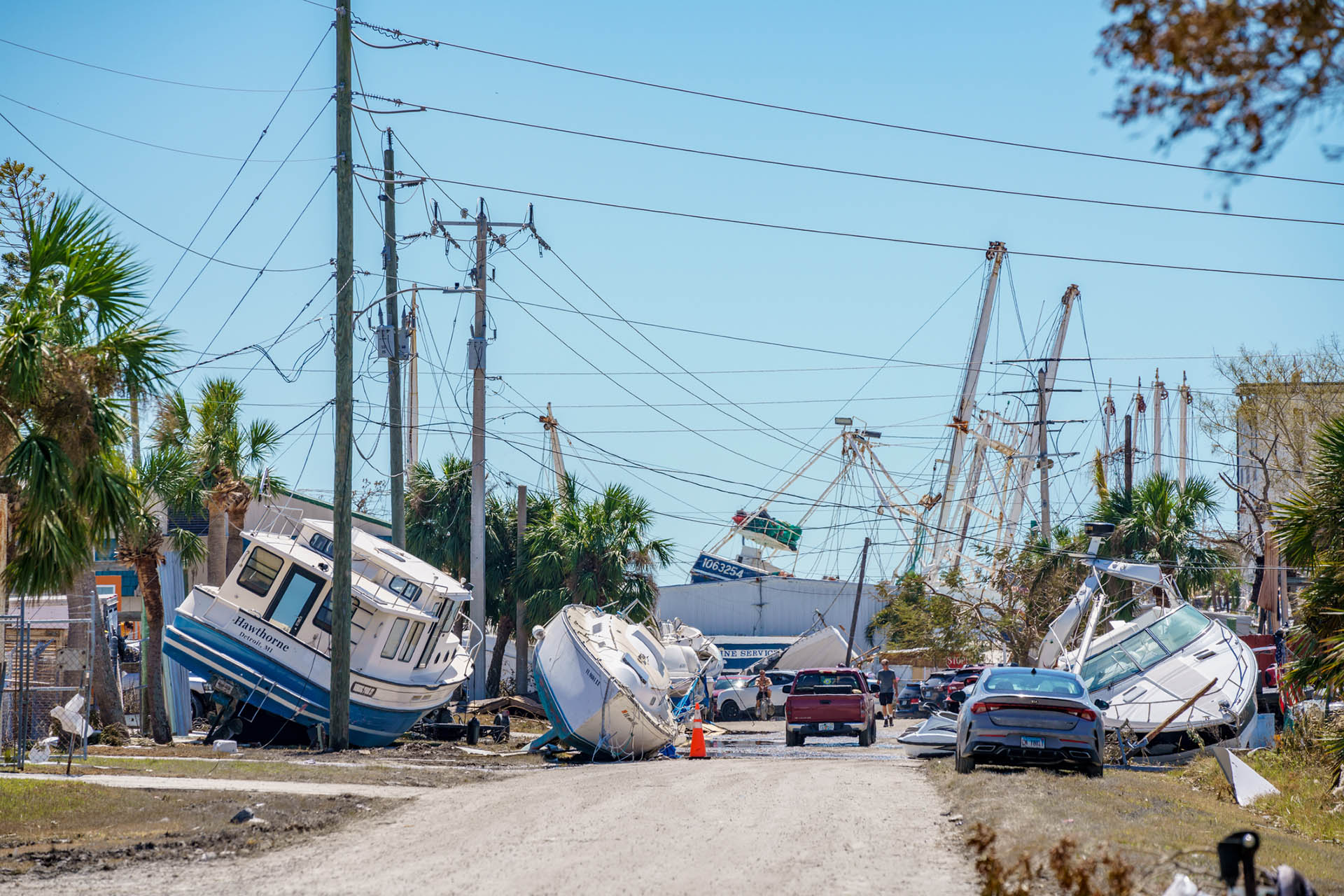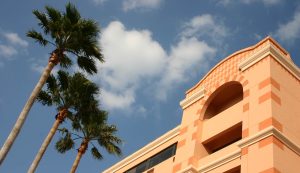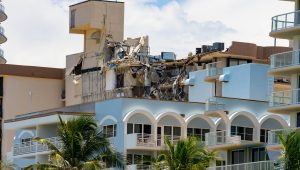Post Hurricane Procedures
Do not let your guard down. There are still safety hazards and dangers all around you. Use these tips for hurricane survival after the storm has left your area.
PROTECT YOURSELF & YOUR FAMILY
- Keep your hurricane supplies in a handy, accessible place.
- If anyone in your household was injured during the hurricane, be sure to administer First Aid. If there are significant injuries, seek emergency care.
- As you clean up your home or assist with cleanup needs around the community, wear appropriate protective gear, including gloves, waterproof boots, and long sleeves.
- Use canned and all perishable food first and use food in the freezer last as it will likely keep for up to a week.
- Account and care for all pets which may have been displaced.
- If you were evacuated, return home only after authorities advise to.
- Avoid fallen power lines. Never touch anything in contact with power lines, including,water or water puddles that may be near the fallen power lines.
- If you have a portable generator DO NOT USE IT INSIDE. *WARNING: Carbon monoxide poisoning risk*
- Be on the lookout for snakes, rodents, and other dangerous critters, as they are frequently displaced after a hurricane.
- Be on the lookout for looters and do not assume that any strangers are harmless, as there are people who will take advantage of a crisis.
PROTECT YOUR PROPERTY
- Lay tarps where any leaks are present or board up broken windows to help prevent vandalism and any additional weather damage.
- Cover any holes in the roof or drywall to prevent further water damage.
- If you think your home might be unsafe due to storm damage, contact your insurance company to find temporary accommodations.
- Be careful of any gas lines that may have been damaged or broken during the storm. If you suspect a gas leak, stay out of the property until the utility company considers it safe. Make sure this is reported to your claim agent.
- Be careful with hazards that are a result of the storm, such as flooding, sharp or broken objects, damaged tree branches or other buildings that may have been damaged by high winds or water.
- If you have gas cans or propane tanks, place them outside.
DOCUMENT THE DAMAGE
- IMMEDIATELY TAKE PICTURES OF ALL DAMAGES UPON YOUR RETURN and NOTIFY YOUR INSURANCE COMPANY OF THE DAMAGES.
- Avoid making permanent repairs until your Claim professional has reviewed the damage.
- Once the claim is opened, keep accurate records of your expenses, and save any/all bills or receipts related to the current hurricane damage.
- Keep detailed record of all communication with insurance company, inspection reports, repair companies, and contact information of your claim agent, inspectors, or estimators.
- Create a list of any damaged personal property, such as damaged items, including a description of the item, manufacturer name, brand name, and date of purchase, if known.
- Include photographs, videotapes, or an itemized list of personal property you may already have.
Remember: surviving a hurricane is about weathering the storm with your family and community.
Work together to prevent further tragedy following a hurricane and make sure the proper authorities (law enforcement, first responders, and insurance claims agent) are aware of any potential hazards.




